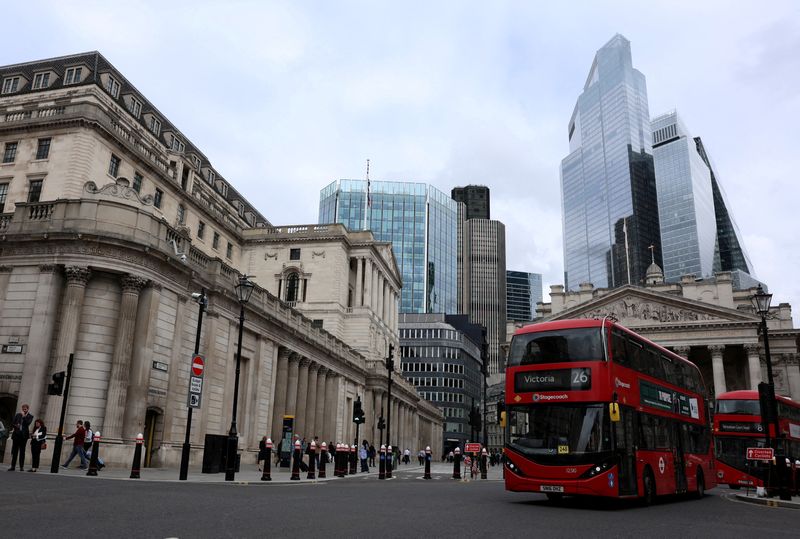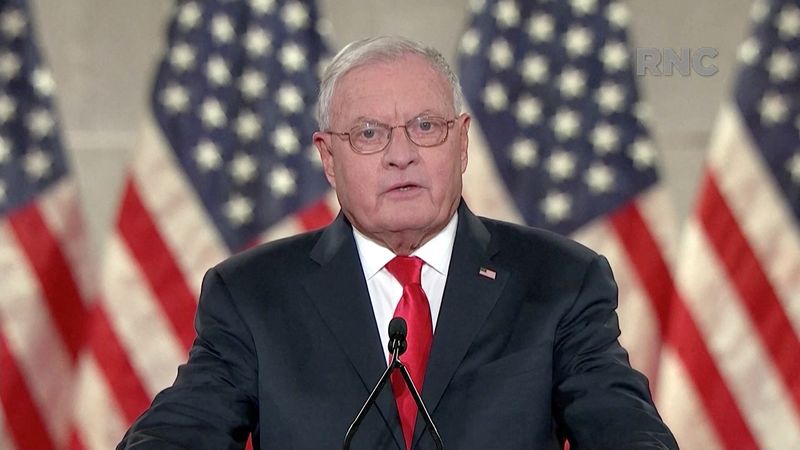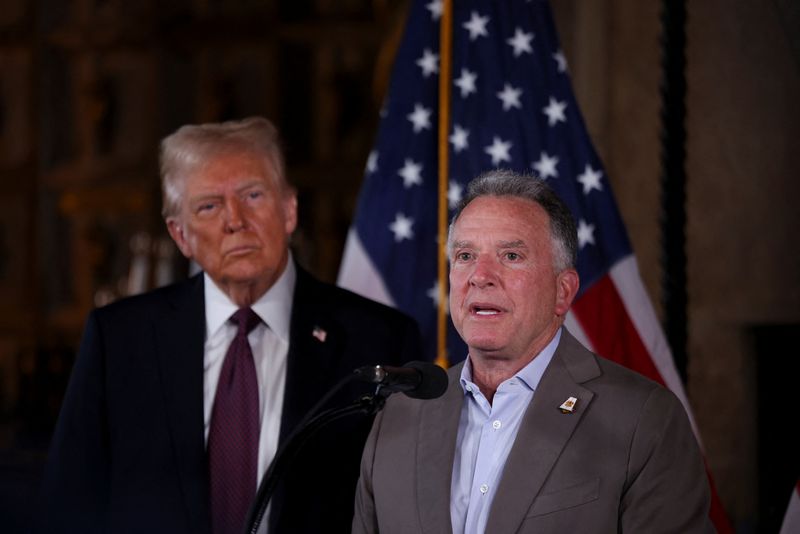By David Milliken and Suban Abdulla
LONDON (Reuters) -Bank of England policymakers voted 6-3 to keep interest rates on hold on Thursday, a bigger split than economists had predicted as officials disagreed over how to respond to a slowing economy that remains beset by inflation pressures.
Deputy Governor Dave Ramsden and the newest Monetary Policy Committee member Alan Taylor unexpectedly joined long-time dove Swati Dhingra in voting to cut rates by a quarter point to 4.5%.
Sterling fell and British government bonds recouped some of their losses caused by Wednesday’s U.S. Federal Reserve meeting, as investors judged the BoE might cut rates marginally faster than previously thought.
But Governor Andrew Bailey – who voted with the majority to keep rates on hold at 4.75% – said the central bank needed to stick to its existing “gradual approach” to cutting rates.
“With the heightened uncertainty in the economy we can’t commit to when or by how much we will cut rates in the coming year,” he said.
Britain’s economy contracted in September and October, the first back-to-back shrinkage since the COVID-19 pandemic, with much of the blame pinned on the new government’s announcement of 25 billion pounds ($31 billion) of tax increases for employers.
Economists polled by Reuters last week forecast the BoE would cut rates four times next year.
But signs of sticky inflation pressures – including faster-than-expected wage growth – then prompted financial markets to scale back their expectations sharply on Tuesday.
Those expectations took a further knock overnight after Fed Chair Jerome Powell said the U.S. central bank would need to be cautious about cutting rates in 2025.
After Thursday’s BoE statement, markets moved to price in 0.53 percentage points of rate cuts for 2025, up from around 0.46 percentage points before but significantly less than the 1.08 percentage points expected from the European Central Bank.
“The MPC’s ability to ease interest rates next year will be constrained by the challenging inflation backdrop,” Yael Selfin, chief economist at KPMG UK, said.
“This will put the BoE in a unique position relative to its counterparts in Europe, particularly the ECB, where a weakening growth outlook increases the urgency to cut rates,” she added.
Sanjay Raja, chief UK economist at Deutsche Bank (ETR:DBKGn), said he expected the BoE to cut rates by a quarter point in February and then wait until the second half of 2025 before cutting rates by a further three quarters of a percentage point.
Financial markets priced in a 45% chance of a quarter point rate cut in February.
Asked about market expectations, Bailey told reporters it was right to expect rate cuts but their timing was uncertain.
“You can see that in immediate market pricing. The market says, ‘well they might cut in February, they might not’. That’s a pretty reasonable starting point,” he said.
SLOWER RATE CUTS
The BoE has already been less willing to cut rates than either the Fed or the ECB, reducing rates by just half a percentage point this year.
Official figures on Wednesday showed British consumer price inflation rose to 2.6% in November – the highest in the Group of Seven rich economies by a small margin, and slightly higher than the BoE itself had forecast last month.
“Headline inflation is expected to continue to rise slightly in the near term,” the BoE said.
However, it also cut its growth forecast for the final quarter of 2024 to zero from a 0.3% forecast just six weeks ago.
The BoE judges that finance minister Rachel Reeves’ Oct. 30 budget will be a net positive for growth in the short term.
But MPC members who backed keeping rates on hold said it remained “particularly uncertain” whether the costs of higher employment taxes would be passed on to consumers through higher prices or lead to job losses and slower pay growth.
The impact on Britain of any change to U.S. trade policy under incoming president Donald Trump was also hard to predict, the BoE added.
“Recent developments added to the argument for a gradual approach to the withdrawal of policy restrictiveness, while eschewing any commitment to changing policy at a specific meeting,” five of the six members said.
The sixth MPC member who voted to keep rates on hold said the BoE might need to adopt “an activist strategy”.
This is language previously used by MPC member Catherine Mann to refer to her preferred approach of keeping rates on hold until inflation pressures had clearly disappeared and then cutting rates more sharply.

The three MPC members who voted to cut rates said a “very restrictive” policy stance risked pushing inflation too far below its 2% target in the medium term and creating an unduly large amount of spare capacity in the economy.
($1 = 0.7947 pounds)











